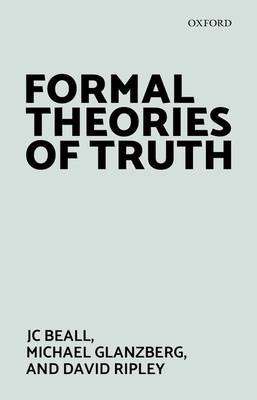
Bedankt voor het vertrouwen het afgelopen jaar! Om jou te bedanken bieden we GRATIS verzending (in België) aan op alles gedurende de hele maand januari.
- Afhalen na 1 uur in een winkel met voorraad
- In januari gratis thuislevering in België
- Ruim aanbod met 7 miljoen producten
Bedankt voor het vertrouwen het afgelopen jaar! Om jou te bedanken bieden we GRATIS verzending (in België) aan op alles gedurende de hele maand januari.
- Afhalen na 1 uur in een winkel met voorraad
- In januari gratis thuislevering in België
- Ruim aanbod met 7 miljoen producten
Zoeken
Formal Theories of Truth
Jc (Professor of Philosophy, Professor of Philosophy, University, Michael (Professor of Philosophy, Professor of Philosophy, North, David (Lecturer in Philosophy, Lecturer in Philosophy, Monash Un
Hardcover
€ 118,95
+ 237 punten
Omschrijving
Three leading philosopher-logicians present a clear and concise overview of formal theories of truth, explaining key logical techniques. Truth is as central topic in philosophy: formal theories study the connections between truth and logic, including the intriguing challenges presented by paradoxes like the Liar.
Specificaties
Betrokkenen
- Auteur(s):
- Uitgeverij:
Inhoud
- Aantal bladzijden:
- 152
Eigenschappen
- Productcode (EAN):
- 9780198815679
- Verschijningsdatum:
- 29/03/2018
- Uitvoering:
- Hardcover
- Afmetingen:
- 137 mm x 198 mm
- Gewicht:
- 278 g

Alleen bij Standaard Boekhandel
+ 237 punten op je klantenkaart van Standaard Boekhandel
Beoordelingen
We publiceren alleen reviews die voldoen aan de voorwaarden voor reviews. Bekijk onze voorwaarden voor reviews.









